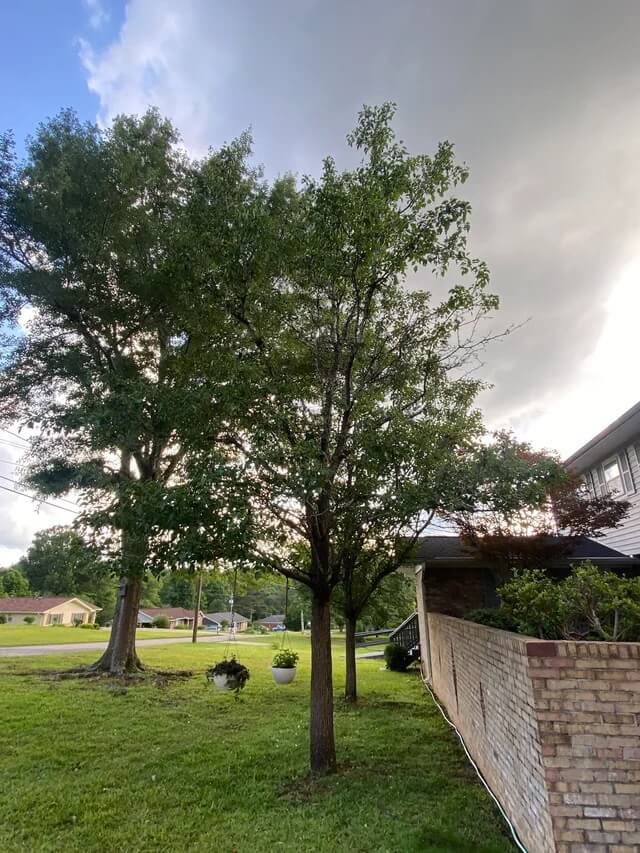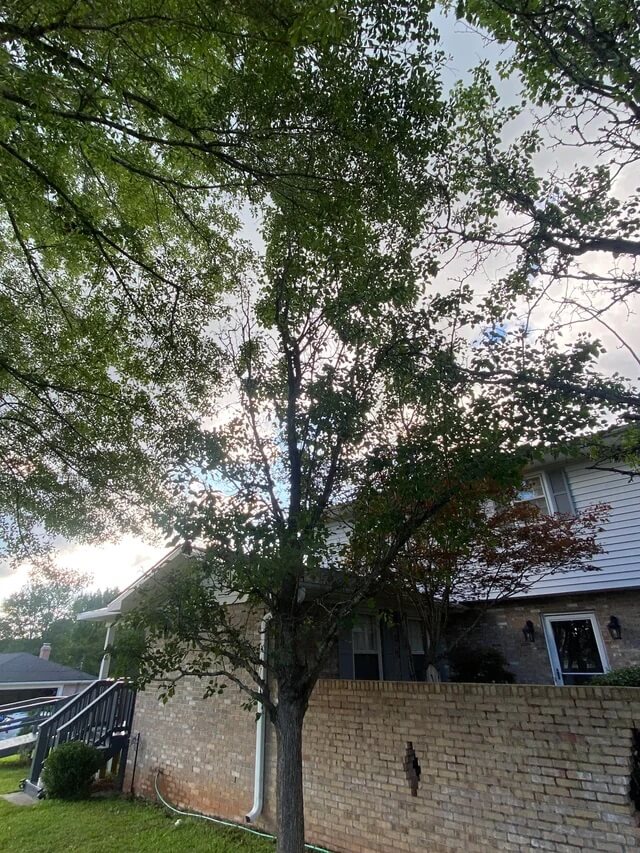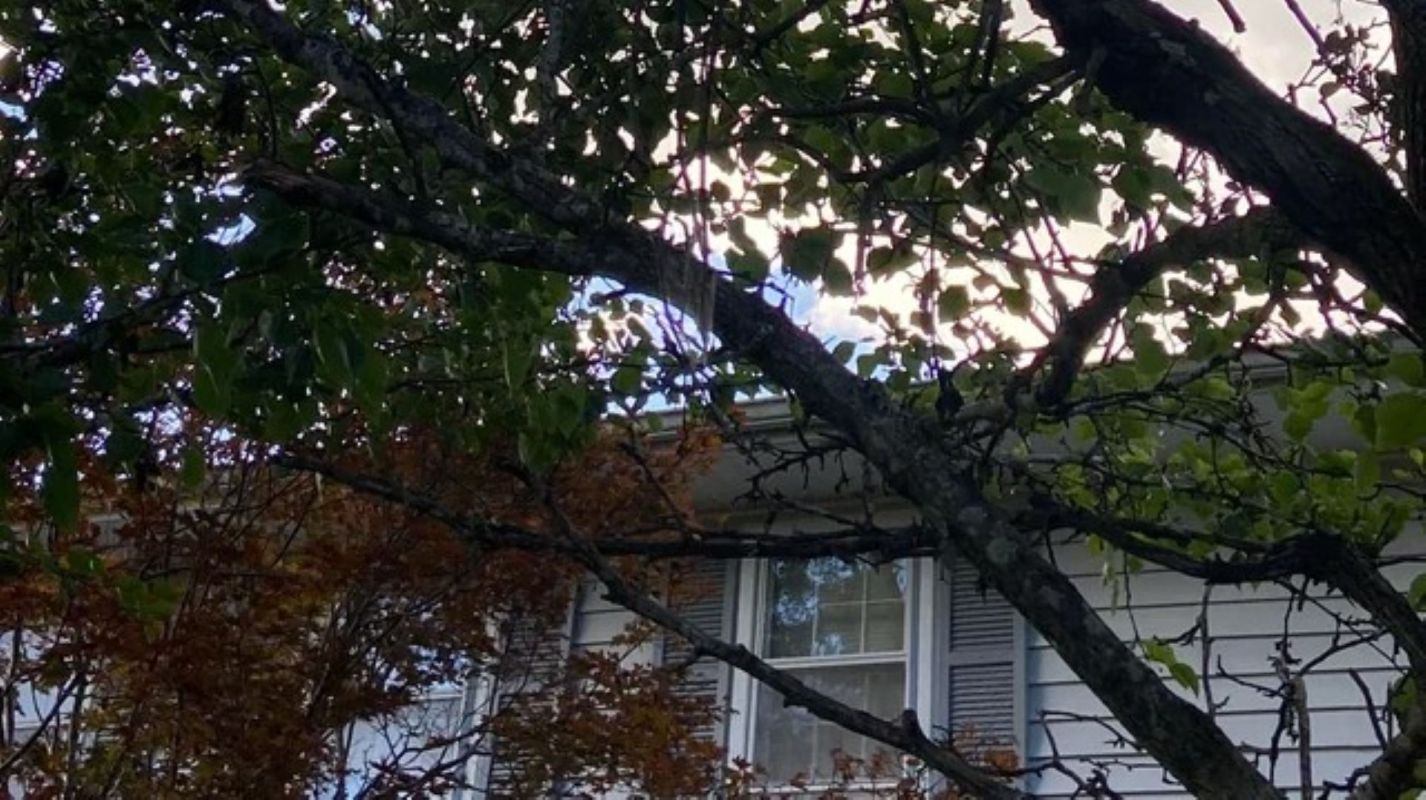Homeowners take pride in their properties' curbside appeal, especially if there's sentimental value behind the shrubs and foliage.
A Reddit user was struggling with the troubling news they received from a local nursery regarding the Bradford pear trees their dad had planted in front of their house 23 years earlier. After learning that they were diseased and should be chopped down, the user turned to r/arborists in hopes of finding another solution.
"Breaks my heart to have to cut them down," the user wrote.
They shared a few details and photos of the trees only to be met with commenters who encouraged them to "get rid of them and select a better tree" and who explained how much havoc the trees wreak on the ecosystem.


Scientifically named Pyrus calleryana, the Bradford pear tree has an interesting history. It is a part of the Rosaceae family and originated from Asia, and it's no surprise that the beautiful blooms attracted developers' eyes for public green spaces, commercial sites, school grounds, and malls as well as residential properties.
Being an adaptable, low-maintenance species, the tree was initially deemed infertile, which was yet another attractive quality for lawn adornment.
However, the perspective has since shifted from convenience to nuisance. In fact, Bradford pear trees are highly invasive and a substantial ecological threat, so much so that North Carolina's government started a program whereupon proving you chopped down a Bradford pear tree, you receive "a free native tree to plant in its place."
Because of its invasive nature, this species poses a threat to native trees, shrubs, and flowers by outcompeting them for space and nutrients. A cluster of them results in dense thickets and can lead to the growth of long thorns. Not only can this tree species throw off the delicate balance of the surrounding ecosystem, but it is also structurally unsound because of its tall stature and thin branches.
The Bradford pear tree isn't the only common landscaping option that is deemed invasive yet is widely available. English ivy is another plant species whose invasive qualities most people overlook because of its charming appearance. But that just goes to show how easy it is to misconstrue something beautiful as harmless, especially when it comes to nature.
Despite the heavy heart the original poster wrote with, those who commented confirmed the nursery's advice and provided helpful alternatives on how to let the trees' sentiment live on in other ways, such as "they make good mulch" and "decent, sweet-tasting smoking wood."
"I don't think you'll find an arborist who will do anything with the Bradford pear but remove it," one commenter wrote. "I get there's sentimental value, but the reality is these trees are horrible for the environment. If you're truly worried about it, I recommend trying to diagnose and treat it yourself, you probably won't get help here given all the Bradford pear hate."
Join our free newsletter for easy tips to save more, waste less, and help yourself while helping the planet.









